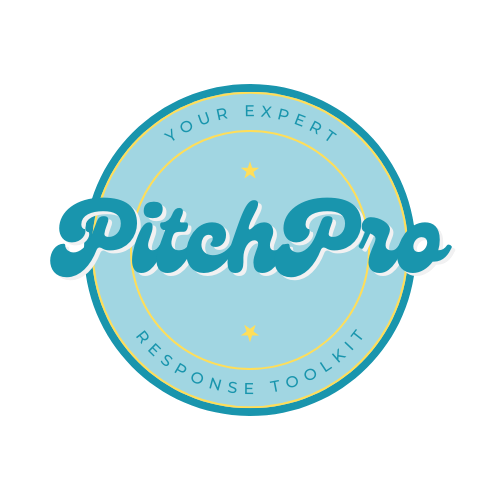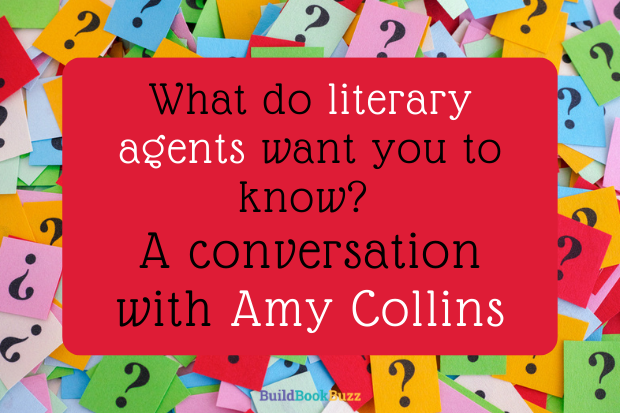What do literary agents want you to know? A conversation with Amy Collins
What does a literary agent look for in an author and manuscript? Talcott Notch Literary's Amy Collins shares her interests and insights.
My blog post two weeks ago shared insights into how traditional publishing works and noted that if you want to pursue a traditional publishing contract, you’ll probably need a literary agent.
A literary agent’s primary job is to sell your book to a publisher for the most favorable terms possible. Sometimes they help shape your proposal or manuscript to make it as marketable as possible before they “pitch” it.
Contrary to what you might see online or in groups, you don’t “hire” an agent. You “contract” with one. An agent works on commission, which means they aren’t paid until both parties sign a contract and the publisher pays the first amount due.
Because this is typically a commission-only sales job, literary agents need to be very, very selective about the people and projects they take on.
With this in mind, I asked literary agent Amy Collins to talk about what she does and offer advice on working with agents.
Introducing Amy Collins
Amy Collins, now an agent with Talcott Notch Literary Services, is one of my absolute favorite people in life and in the publishing business.
Amy has more than 30 years of experience matching books with readers. A former book buyer, publisher, sales director, and owner of New Shelves Books, she now represents many authors who have signed deals with major publishers.
Amy also teaches classes on querying and creating great proposals for Writers Digest. If you’re at a conference where Amy’s speaking, get to her session early and be prepared to take notes. She’s an entertaining and engaging speaker with something important to say to authors.
Behind the scenes with a literary agent
I know you love being a literary agent. Tell us why.
I have always enjoyed research, making new friends, and matching books with readers. For 30 years, I sold books to bookstores and libraries. Now, as an agent, I use my sales talent to help an author find a perfect fit at a publishing house. It is a joy to help authors achieve their dream of a publishing deal.
As an agent, I am constantly getting to meet talented editors and work with them to find clever ways to get my author’s books in front of as many people as possible.
It is a joy to help authors achieve their dream of a publishing deal. ~ Literary Agent Amy CollinsClick to tweetWhat sorts of authors and projects do you represent — what’s your sweet spot?
My main focus is science fiction, fantasy, and speculative fiction. As for nonfiction, I work with books in the following categories: cookbooks, pop culture, and cultural reference.
I caution authors that I would not be a great agent for memoir, children’s, or business books. I have some clients who also write mystery, thriller, and children’s books, but I tend not to look specifically for them.
What’s your best client success story?
I love TikTok, and while scrolling one day, I was charmed by a young woman named Devrie Brynn Donalson. She was looking straight into the camera, telling the viewer that they were a hot mess and “good for us.” She raved and ranted and had me laughing so hard I had to catch my breath.
I sent her a message and asked if she had ever considered writing a book. Well, she had. She wanted very much to write a book. She and I spent a few months getting to know each other and developing book ideas. After a while, we felt confident we would work together well.
I put together the proposal, Devrie wrote the book, and I started pitching to publishers. We had interest in less than a week, and within a month, we had a wonderful offer. Blackstone will publish the book early next year.
How about a project disappointment — a book that didn’t find the home you thought it would, or that everyone had high hopes for but it didn’t find its audience?
Two years ago, one of my first clients had a terrific book. We got an offer and publishing deal that thrilled us all. I was sure the book would be a bestseller and sell like gangbusters.
At the same time, another client wrote a gorgeous novel, and I started pitching it that same month, expecting to have an offer within six months. In both cases, I am afraid that my expectations were way off. The nonfiction book sold well, but not enough to make the publisher or author happy. The novel is still one of my favorites, and I will not give up until I have found it a home.
But it is quite disappointing for the author to see my other clients get offers and published while she waits.
What do you look for in an author and a project — what makes you think you’ve got a winner?
I look for an author who has a LOT of books in them. I love the idea of helping an author navigate their career, not just one book. I can tell within a few moments if the writing is “my style.”
I need to really love the book I am working with, or it will not be a good fit.
I do not charge for any of my time or work. Agents only get paid once the book sells. If I am going spend months and years working with authors on a book’s editing, pitching, contracts, marketing, launch, and series as well as audio and international rights? I had better love it.
Agents only get paid once the book sells. If I am going spend months and years working with authors on a book's editing, pitching, contracts, marketing, launch, and series as well as audio and international rights? I had better love it. ~ Literary Agent Amy CollinsClick to tweetThat being said? I do not depend solely on my personal taste. I love books I discovered when I was 30. I read and reread them and love them. But they would not sell today to 30-year-olds. I have to remember that my taste is not everyone’s taste.
My job as an agent is to match my client’s style with the right editor and publishing house. Thank goodness not everyone has my taste in books.
What’s the one thing you want to see in a message from an author who wants you to represent them?
I love to see in the message that the author understands how publishing works. If they mention a conference they attended or organizations they belong to, that is great. I love to see the word count and genre early in the email.
I love to see in the message that the author understands how publishing works. ~ Literary Agent Amy CollinsClick to tweetBut mainly? Less is more. I do not need much to become willing to read a few pages. If the genre and premise fit the kind of book I represent? I will happily read a few pages.
What are some of the common mistakes authors make when approaching literary agents?
Not knowing the current successful authors in their genre and making claims that their book is unique. (It rarely is.) Another misstep is when I ask for a plot synopsis or plot outline; they do not have it ready. (Agents will need this eventually, so have it ready.)
Is there anything else you’d like to add?
The advice I give most often is to read books that are being published today and in your genre. Book pacing and writing styles change over time, and staying current is essential. If you are selling a book in 2023, your book needs to appeal to readers in 2023.
Thanks so much to Amy for sharing her insights with us!
Years ago, I generated so much global publicity for a subscription newsletter I created that I didn’t have to look for a literary agent for the book version of the newsletter – agents started calling me. That media exposure generated my first agent and book contract.
That’s just one reason why I’m always nudging you to get media attention. The exposure can be priceless.

To help with that, my author publicity resource, “PitchPro: Your Expert Response Toolkit,” focuses on the single easiest way to get news media attention that can help build your author career. Get the details at https://build-book-buzz.teachable.com/p/pitchpro-your-expert-response-toolkit.
I also created Build Book Buzz Publicity Forms & Templates to help you write and use the most common publicity documents – pitch letters, press releases, sample Q&As, etc.– that you’ll use when seeking author and book publicity. Learn more about this collection of templates and real-world samples at https://build-book-buzz.teachable.com/p/build-book-buzz-publicity-forms-templates .
Get out there and get known. It can help you and your work be discovered by the right people … people like literary agent Amy Collins.
Got questions about working with a literary agent? Please ask them in a comment.
Like what you’re reading? Get it delivered to your inbox every week by subscribing to the free Build Book Buzz newsletter. You’ll also get my free “Top 5 Free Book Promotion Resources” cheat sheet immediately!



Thanks for this excellent post. Getting the inside scoop will be very helpful to aspiring authors and I will be sharing this widely. Love to see my favorite two people in publishing!
Thanks, Sonia! Amy’s the best, isn’t she?
Sandy
Hello Sonia! Nice to see you!
I thought the article filled in lots of gaps a Newbie might wonder about and even quit writing. It is a possibility. What I’ve noticed is lots of literary agents don’t respond with a rejection slip. Time is always something we can save especially if literary agents have an auto response system to deal with submissions. No news stays bad news but a reply can breed hope that is eternal. What might it take to take an auto-reply system to heart? A Big Question needing a Big answer.
I completely agree with you! That is why I use Query Me query manager. The submission is logged, sent to me and the author can see the status at any time. It saves so much worry. And authors can see an agents average response time!
Dear Amy
My query is how does an 80-year-old know what the market wants today? I read a lot in my genre – thriller, mystery, adventure – but I am not sure that helps. My books are reasonable well received when read – over 4 on Goodreads – and yet finding an agent is difficult.
When you said I should to know what readers are reading, it struck a note, but I am not sure what to do with it.
Market viability is tough. I feel your pain. If you are reading traditionally published books that came out in the last year then you are on the right track! Those books are what the market wants. Keep an eye on the B&N bestseller lists and subscribe to Publishers Lunch. Publishers Lunch is a free newsletter that will share what publishers are buying FROM agent.
On your advice to know the current writing scene if one wishes to succeed in today’s market of the moment: what if one is writing for the ages? Your experience says this is most unlikely, but such writings do, in fact, appear from time to time.
Without taking issue with you on understanding how publishing works, I do have a question. What is the point of an agent but to give space for the writer to do his work? The writer writes, and the agent finds ways to fill the collosal gaps that a word-driven writer doesn’t have time or talent for.
I would think it equally rewarding, historically, to be discovered as a writer after death, as being noted for one while alive. Time will be the agent that matters, in this case.
That is true. An agent IS supposed to fill in some of those gaps. That is why I strive to educate and share my industry insights with my clients and all authors so that they don’t have to dig so hard for the information in their own.